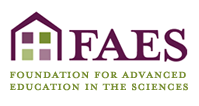 ROCKVILLE AND BALTIMORE, MARYLAND, January 6, 2014 – BioHealth Innovation, Inc. (BHI) and MIMETAS announced today that Todd Chappell, MBA, an Entrepreneur-in-Residence for BHI, has been named General Manager, U.S. Affairs for MIMETAS. A Netherlands-based company, MIMETAS is establishing its offices within BHI’s headquarters in Rockville. MIMETAS and BHI created a U.S. subsidiary of MIMETAS to access the clinical, regulatory and scientific resources available in Central Maryland and to access the U.S. marketplace, the largest life sciences market in the world.
ROCKVILLE AND BALTIMORE, MARYLAND, January 6, 2014 – BioHealth Innovation, Inc. (BHI) and MIMETAS announced today that Todd Chappell, MBA, an Entrepreneur-in-Residence for BHI, has been named General Manager, U.S. Affairs for MIMETAS. A Netherlands-based company, MIMETAS is establishing its offices within BHI’s headquarters in Rockville. MIMETAS and BHI created a U.S. subsidiary of MIMETAS to access the clinical, regulatory and scientific resources available in Central Maryland and to access the U.S. marketplace, the largest life sciences market in the world.
“We’re very pleased to add Todd to the MIMETAS team,” said Jos Joore, Ph.D., Chief Business Officer of MIMETAS. “Todd couples a vast experience in business creation with a profound understanding of biology and disease mechanisms. Most importantly, Todd shares our sense of urgency around enabling better medical treatment by using more predictive cell culture models.”
Previously, Mr. Chappell was the Vice President of Operations for Shape Pharmaceuticals, a portfolio company of HealthCare Ventures, LLC, where he oversaw all day-to-day operations involved in the development of a novel HDAC inhibitor for Cutaneous-T-Cell-Lymphoma. Prior to that, he was at CombinatoRx Inc. for eight years and served as Director of New Products. Mr. Chappell will be combining his role at MIMETAS with his existing EIR position at BHI.


 ROCKVILLE AND BALTIMORE, MARYLAND, January 6, 2014 – BioHealth Innovation, Inc. (BHI) and MIMETAS announced today that Todd Chappell, MBA, an Entrepreneur-in-Residence for BHI, has been named General Manager, U.S. Affairs for MIMETAS. A Netherlands-based company, MIMETAS is establishing its offices within BHI’s headquarters in Rockville. MIMETAS and BHI created a U.S. subsidiary of MIMETAS to access the clinical, regulatory and scientific resources available in Central Maryland and to access the U.S. marketplace, the largest life sciences market in the world.
ROCKVILLE AND BALTIMORE, MARYLAND, January 6, 2014 – BioHealth Innovation, Inc. (BHI) and MIMETAS announced today that Todd Chappell, MBA, an Entrepreneur-in-Residence for BHI, has been named General Manager, U.S. Affairs for MIMETAS. A Netherlands-based company, MIMETAS is establishing its offices within BHI’s headquarters in Rockville. MIMETAS and BHI created a U.S. subsidiary of MIMETAS to access the clinical, regulatory and scientific resources available in Central Maryland and to access the U.S. marketplace, the largest life sciences market in the world.

